National Care Service - complaints: findings summary - easy read
This report sets out findings we have gathered through research and co-design that relate to complaints and redress.
Part 6
What is next
What is next for NCS Complaints?

We will continue to run co-design sessions.
We will speak to people who use and deliver services to understand how the National Care Service (NCS) can support people to:
- provide feedback
- fix issues quickly
We want to speak to as many different people as we can.

We have started to speak to people from groups we have spoken to less in our co-design sessions.
This includes:

- people with dementia
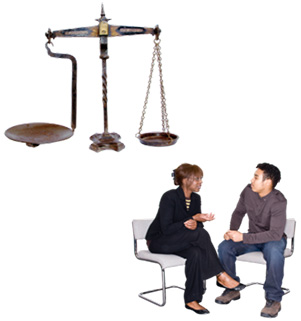
- people who have experience of the justice social work services

- children and young people

This co-design activity has helped us to understand how people experience complaints right now.
We will now focus on hearing ideas to help us:
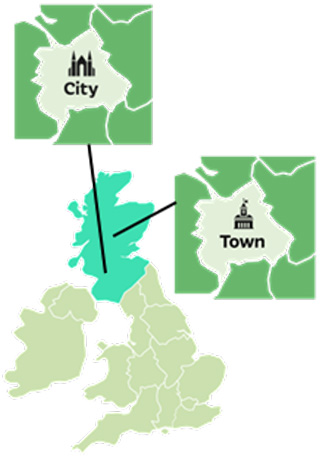
- understand how complaints are dealt with across Scotland and in local areas like towns and cities

- make everyone’s experience of making a complaint about social care support better

- test new ideas to make sure that they will work
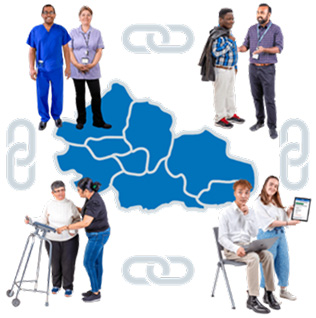
We will also work with organisations who support the delivery of social care support to understand how to do this.
What is next for the National Care Service (NCS)

The Scottish Government will deliver the NCS to make social care support meet your needs.
We want the NCS to be:

- fair

- good quality

- the same for everyone who needs it
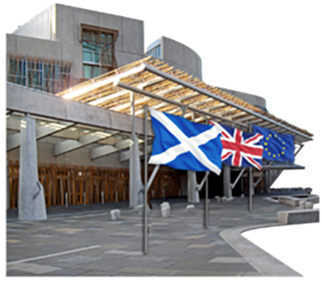
Members of Scottish Parliament (MSPs) have agreed with the idea of a National Care Service and how it will run.
They have done this by:

- hearing the views of people with lived experience of using and providing care support services

- writing reports on what they have heard

- voting on whether the NCS Bill should be taken to the next stage
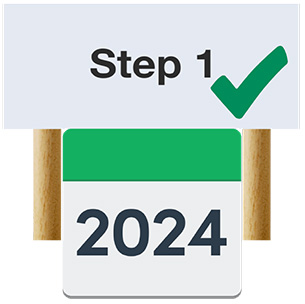
The NCS Bill passed Stage 1 in the Scottish Parliament in February 2024.
There are 3 stages.
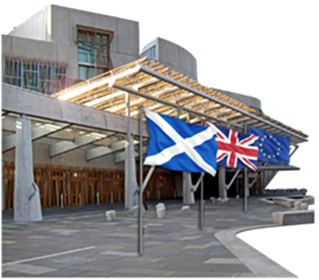
A Bill is a proposed law that needs to be passed by the Parliament before it can become a law.
For more information about the National Care Service Bill, visit National Care Service (Scotland) Bill (parliament.scot)

The NCS Bill will now enter Stage 2. This is where MSPs can make changes to the Bill.

We will continue to run co-design sessions and will speak to groups of people we have not yet spoken to.

We will also make existing social care support better.
This includes things like supporting the workforce to make it a good profession to work for.
Getting involved
We want to speak to as many people as we can to help us build the NCS.

If you would like to tell us your views you can join our Lived Experience Experts Panel (LEEP).
For more information about LEEP, visit https://www.gov.scot/publications/design-the-national-care-service/
If you join LEEP you will be invited to take part in different things like:

- surveys

- interviews

- sharing ideas

- helping us understand what our research is telling us

- helping us make sure the NCS works for everyone

For more information about the NCS, visit gov.scot/ncs
Annex A: Summary of key findings from our research that was sent to participants before co-design sessions

We looked into how complaints about social care, social work and community health are handled now.

We found that some things are working well:

- anyone who uses or asks for social care support can make a complaint

- complaints received by public bodies like local councils should be handled in the same way
- they should try to fix issues quickly if they can
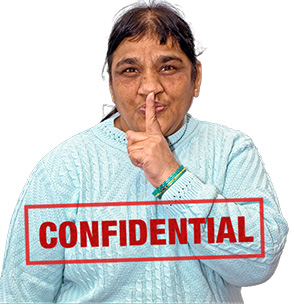
- people can make a confidential complaint to the Care Inspectorate
We also heard about some things that are not working well:

- making a complaint can be very hard for some people

- people are confused about how to make a complaint and who to complain to

- some people have to wait a long time for their issue to be fixed

- making a complaint uses a lot of energy
- people would like more support to make a complaint

- people can be scared to make a complaint
- they worry that their care support might be taken away if they make a complaint

- people make a complaint to make services better for everyone who needs them
- this does not always happen even if people would like it to

- information and data about complaints is shown and shared in different in different parts of Scotland
- this means we cannot understand how many complaints are made and how services can be made better
Contact
Email: NCScommunications@gov.scot
There is a problem
Thanks for your feedback